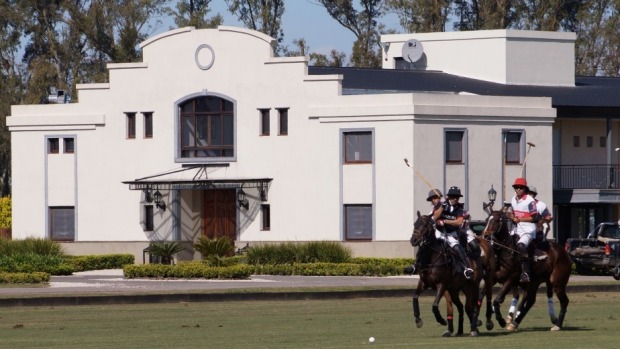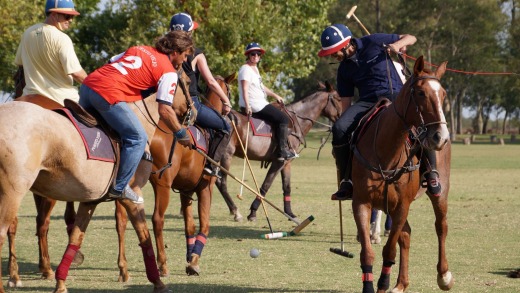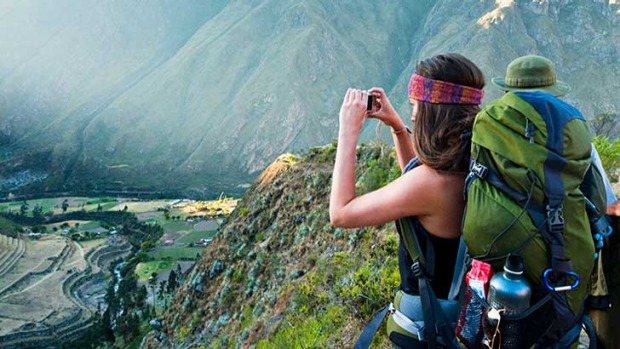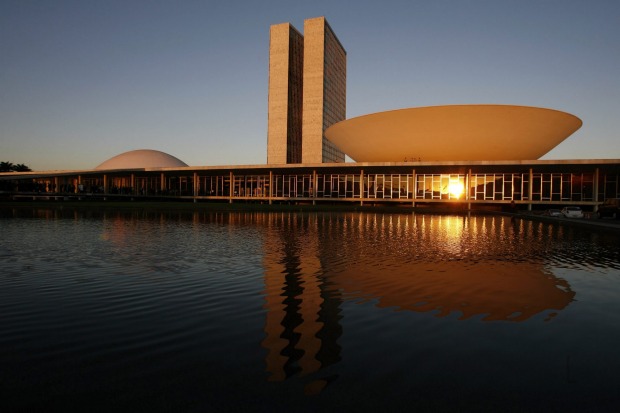
Buenos Aires: unpredictable, politically sizzling and passionately playful, is a city of contrasts. But for all the football, meat and Evita tales, South America's most visited city is also informed and shaped by the land it sits beside – vast pampas, a land of cattle, cowboys and the enduring stamp of Spanish colonialism.
It's worth a look beyond the Argentinian capital. Montevideo, in neighbouring Uruguay, is an easy trip by boat across the wide mouth of the Rio de la Plata, and Tigre is a short train trip to Buenos Aires' delta-rimmed north.
But for a true escape, head to the grounds of one of the country's most well-to-do and beautiful polo clubs, where absolute beginners try the sport on some of the world's best-trained (and most gentle) ponies.

It takes an hour for our courtesy bus to punch through Buenos Aires' monument-heavy avenidas and politically daubed walls into the pampas for which Argentina is so well known. Another half an hour and we are well and truly surrounded by the plains; land that stretches, flat as the green felt of a snooker table and pocked by a number of the 240 polo pitches of Buenos Aires' rich and famous. Puesto Viejo polo club is a playground of the Portenos and we are here to learn polo. Or at least give it a go.
Getting to Che Guevara's launching pad was never easy from Australia in the past - the journey involved an arduous three flights, upwards of 24 hours each way. However, it's now made considerably easier thanks to Air New Zealand's new Auckland to BA direct service, which reduces the journey to an easy 14 hours 40 minutes from Melbourne and Sydney.
The Argentinian player could be straight out of a Jilly Cooper romance.
The day we visit Puesto Viejo is blindingly hot – the infinity pool of one of the guesthouses looks like a mirage in a desert of beautifully tended lawns, pitches and paddocks. It's pushing the mid 30s as we trot towards the practise paddock in our jeans and weighty helmets. We have been standing on plastic stools, gently swinging the oddly long polo sticks and learning how to tap the ball. Sitting on a pony is another matter all together.
There isn't much teacher Julio Casares can't do. The Argentinian polo player could be straight out of a Jilly Cooper romance: boyishly good looking, ferociously charming and as happy playing polo in international competitions as he is gallivanting with absolute beginners, most of whom have never ridden before. Or, at least, he makes a very good show of it as we fall about with laughter while bungling and floundering around.
Where in the world do polo lessons include a two-hour intermission for barbecued lunch and a snooze in the shade? Under a wooden loggia and beside flower beds, our long table is filled with salads, bread, cold meats and cheeses and then meat from the asado. For the uninitiated, hold back in the early stages: asados seem to be as much about generosity as they are about celebrating Argentina's love affair with the cow. Add a glass of the club's specially bottled Mendoza malbec and it's probably not what the team trainer would recommend. It's bliss.
While we eat, the resident dog wanders past our dining table, ignoring the meat to find a spot to sleep in the shade of a tree, as if encouraging us to do the same. Most of us do – we have a match to play later, after all.
Combine the unearthed equine talents of eight non-polo players in one match, and pandemonium ensues. There are few more hilarious and plainly fun games than the semblance of polo we stage. It's farcical, we have little control over ourselves let alone the ponies and to expect a ball to be on target after our frenzied attempts at the goal is far-fetched. I would never have picked polo as being a sport that is excellent fun for novices, but this attempt at a game is an hour or so of utter delight.
Julio sees the (very) funny side of it, even as tears stream down one team-mate's face as her horse dutifully follows confused instructions and wanders off the pitch and away from the fray.
Watching a practise match as the sun begins to sink over the hazy pampas, we are firmly put in our places. Balls fly, are met with sticks and walloped through the posts. Horses turn on a coin and dance around balls as players lean low, clipping balls from their opponents' reach.
Real polo players do it better – much, much better.
Lesson, long lunch, game of polo and a professional match, $200.
Air New Zealand's newly refurbished Boeing 777-200 flies three times a week from Australian capitals to Buenos Aires via Auckland.



